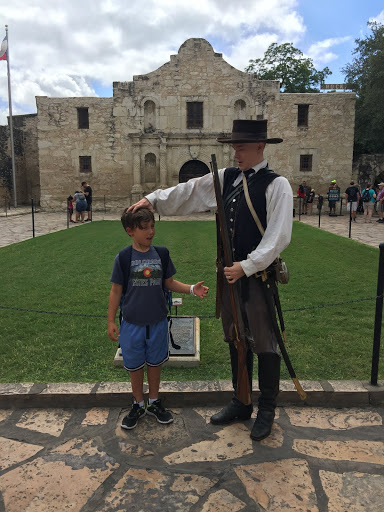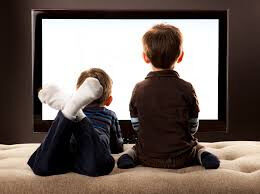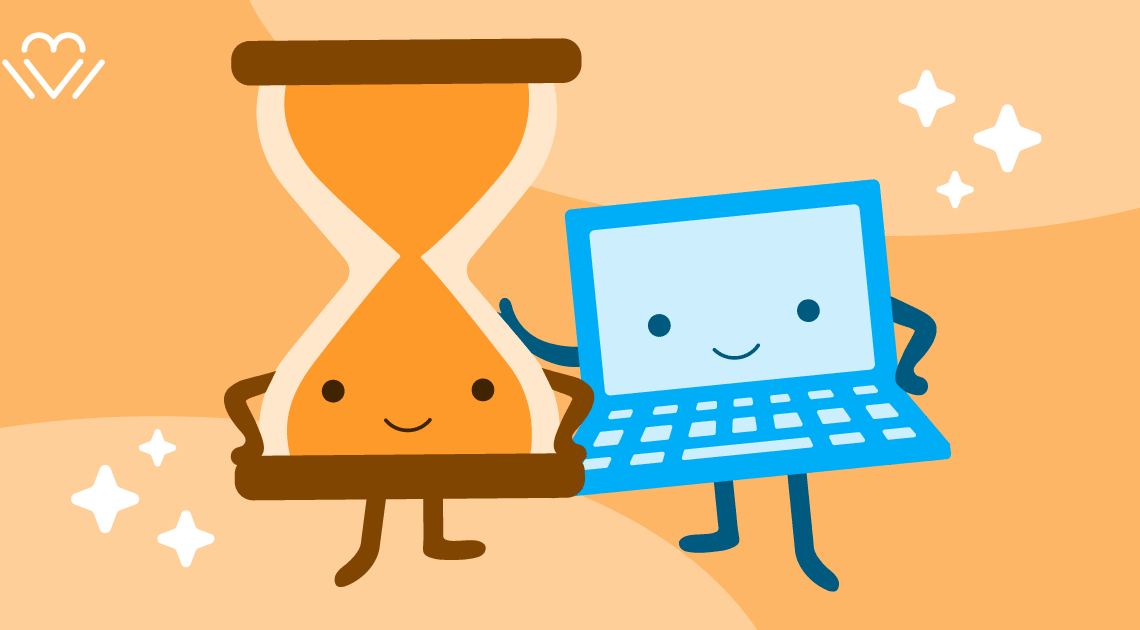
Reimagining Summer: 8 Ways to Continue Learning When School's Out
 The arrival of the holidays does not mean that learning has to stop. As a parent, this can provide you with great opportunities to broaden your child’s young mind, from trips to museums, to fun experiments, to learning and improving by leaps and bounds in maths, to discovering new literature. It is not about following a strict curriculum but discovering different ways to get your child thrilled about learning. Over the summer, literacy skills can dip. But you can keep your child up to speed by stocking up on some great books. Reading is an excellent way of keeping your child occupied. This activity will enrich his learning as well. You can sign him up for a summer reading program or perhaps check out several websites offering online summer reading programs at a reasonable price. Many public libraries also include summer reading programs to incentivize reading with prizes and free programs. Writing practice can be as simple as asking your child to come up with a weekly food shopping list or to write down all the TV programs he wants to watch throughout his summer break. You can also give him a blank postcard and at the end of the break ask him to write a note to his teacher regarding his favorite day. Moreover, encourage him to keep a daily journal. You can come up with a minimum length and other details for each entry like correcting misspelled words and wrong grammar. However, you must give him the freedom to choose what to write about. And let him share his journal to you so he knows it is vital to keep up with it. A family trip abroad is an opportunity to learn a new language or practice current skills. You can teach your child some useful expressions and phrases. Moreover, you can enroll him in children’s Arabic tuition in Dubai or hire a tutor to teach him at home. Cool apps are also fun ways to integrate technology into language learning such as the free app Duolingo. Science does not have to be boring; there are fun and easy chemistry activities that you can conveniently do in your own garden. The “exploding lunch bag” is worth a try. You will need warm water, baking soda, a sandwich bag, a measuring cup, vinegar, and a tissue. The mixture of vinegar and baking soda will create a reaction, and things will go pop eventually. Another activity you can try is to make your own lava lamp. You will need water, a soda bottle, fizzing tablets, food coloring, and vegetable oil. Pour the water in the bottle, then the oil. The oil will rise above the water since it is lighter, and the oil molecules will be attracted to other oil molecules. Add drops of food coloring, and then drop the tablet into it. Once they have completed the experiment, you can ask your child some scientific questions for him to answer, such as: Does the size of the tablet affect the number of blobs formed? Summer camps are among the best resources that can help your child learn from fun, educational and organized activities. Today, there are plenty of resources for summer camps; they vary in terms of length of time, price and interest. Take your child to the park and recreation ground. Ask him to search for bugs and insects and let him draw an annotated picture of them. Moreover, you can take him out for a picnic where you can explore healthy eating. Bring some fresh produce like herbs and lettuce, and ask him to identify each. You can also get him to sort the foods you brought by how healthy they are. Starting a garden is also a great way to bring learning to life from calculating the area of your garden patch to growing an apple tree from a seed. Cooking is an excellent way to work on writing, reading and math. Let your child write a grocery list, find them in the store, and read the recipe aloud when you are cooking. Further improve his math skills by asking him to measure out the ingredients for a recipe. Volunteering will reinforce your child’ social skills. She can join a kid’s theatre group or take part in different community activities. Children’s learning can be substantially affected by taking a two-month break every summer. They can suffer from summer learning loss, so continued learning is critical to help them retain significant concepts and easily grasp new information before the next school year commences. So let your child join educational activities during his summer break. Tap into his interests to achieve a balance between having fun and retaining or improving skills. If he returns to school with his skills intact, he will feel rested and confident about the upcoming school year. AUTHOR BIO Bushra Manna is one of the founders and Principal of Leaps and Bounds Education Centre – Motorcity. She has 20 years experience teaching the British and American curricula internationally at primary level – early middle school level, ages 4-12. Bushra has a passion for teaching and started her teaching career as an assistant teacher for 2 years, during which an autistic boy was appointed to her care within a mainstream classroom setting. Working with Ismail opened her eyes to the significance of 2 crucial elements: knowing a child’s best learning style and having an individualized approach to teaching and building a child’s self-confidence to ensure their psychological well-being. Bushra believes in imparting deep learning to a child and not just rote learning, which is why she recommends the Magikats programme at her centre, to promote a genuine understanding with its multisensory, differentiated and interactive approach within a small group setting. “At the centre, we cater for children needing support, those with special learning needs and the gifted, addressing the individual need of each child.”
The arrival of the holidays does not mean that learning has to stop. As a parent, this can provide you with great opportunities to broaden your child’s young mind, from trips to museums, to fun experiments, to learning and improving by leaps and bounds in maths, to discovering new literature. It is not about following a strict curriculum but discovering different ways to get your child thrilled about learning. Over the summer, literacy skills can dip. But you can keep your child up to speed by stocking up on some great books. Reading is an excellent way of keeping your child occupied. This activity will enrich his learning as well. You can sign him up for a summer reading program or perhaps check out several websites offering online summer reading programs at a reasonable price. Many public libraries also include summer reading programs to incentivize reading with prizes and free programs. Writing practice can be as simple as asking your child to come up with a weekly food shopping list or to write down all the TV programs he wants to watch throughout his summer break. You can also give him a blank postcard and at the end of the break ask him to write a note to his teacher regarding his favorite day. Moreover, encourage him to keep a daily journal. You can come up with a minimum length and other details for each entry like correcting misspelled words and wrong grammar. However, you must give him the freedom to choose what to write about. And let him share his journal to you so he knows it is vital to keep up with it. A family trip abroad is an opportunity to learn a new language or practice current skills. You can teach your child some useful expressions and phrases. Moreover, you can enroll him in children’s Arabic tuition in Dubai or hire a tutor to teach him at home. Cool apps are also fun ways to integrate technology into language learning such as the free app Duolingo. Science does not have to be boring; there are fun and easy chemistry activities that you can conveniently do in your own garden. The “exploding lunch bag” is worth a try. You will need warm water, baking soda, a sandwich bag, a measuring cup, vinegar, and a tissue. The mixture of vinegar and baking soda will create a reaction, and things will go pop eventually. Another activity you can try is to make your own lava lamp. You will need water, a soda bottle, fizzing tablets, food coloring, and vegetable oil. Pour the water in the bottle, then the oil. The oil will rise above the water since it is lighter, and the oil molecules will be attracted to other oil molecules. Add drops of food coloring, and then drop the tablet into it. Once they have completed the experiment, you can ask your child some scientific questions for him to answer, such as: Does the size of the tablet affect the number of blobs formed? Summer camps are among the best resources that can help your child learn from fun, educational and organized activities. Today, there are plenty of resources for summer camps; they vary in terms of length of time, price and interest. Take your child to the park and recreation ground. Ask him to search for bugs and insects and let him draw an annotated picture of them. Moreover, you can take him out for a picnic where you can explore healthy eating. Bring some fresh produce like herbs and lettuce, and ask him to identify each. You can also get him to sort the foods you brought by how healthy they are. Starting a garden is also a great way to bring learning to life from calculating the area of your garden patch to growing an apple tree from a seed. Cooking is an excellent way to work on writing, reading and math. Let your child write a grocery list, find them in the store, and read the recipe aloud when you are cooking. Further improve his math skills by asking him to measure out the ingredients for a recipe. Volunteering will reinforce your child’ social skills. She can join a kid’s theatre group or take part in different community activities. Children’s learning can be substantially affected by taking a two-month break every summer. They can suffer from summer learning loss, so continued learning is critical to help them retain significant concepts and easily grasp new information before the next school year commences. So let your child join educational activities during his summer break. Tap into his interests to achieve a balance between having fun and retaining or improving skills. If he returns to school with his skills intact, he will feel rested and confident about the upcoming school year. AUTHOR BIO Bushra Manna is one of the founders and Principal of Leaps and Bounds Education Centre – Motorcity. She has 20 years experience teaching the British and American curricula internationally at primary level – early middle school level, ages 4-12. Bushra has a passion for teaching and started her teaching career as an assistant teacher for 2 years, during which an autistic boy was appointed to her care within a mainstream classroom setting. Working with Ismail opened her eyes to the significance of 2 crucial elements: knowing a child’s best learning style and having an individualized approach to teaching and building a child’s self-confidence to ensure their psychological well-being. Bushra believes in imparting deep learning to a child and not just rote learning, which is why she recommends the Magikats programme at her centre, to promote a genuine understanding with its multisensory, differentiated and interactive approach within a small group setting. “At the centre, we cater for children needing support, those with special learning needs and the gifted, addressing the individual need of each child.”







